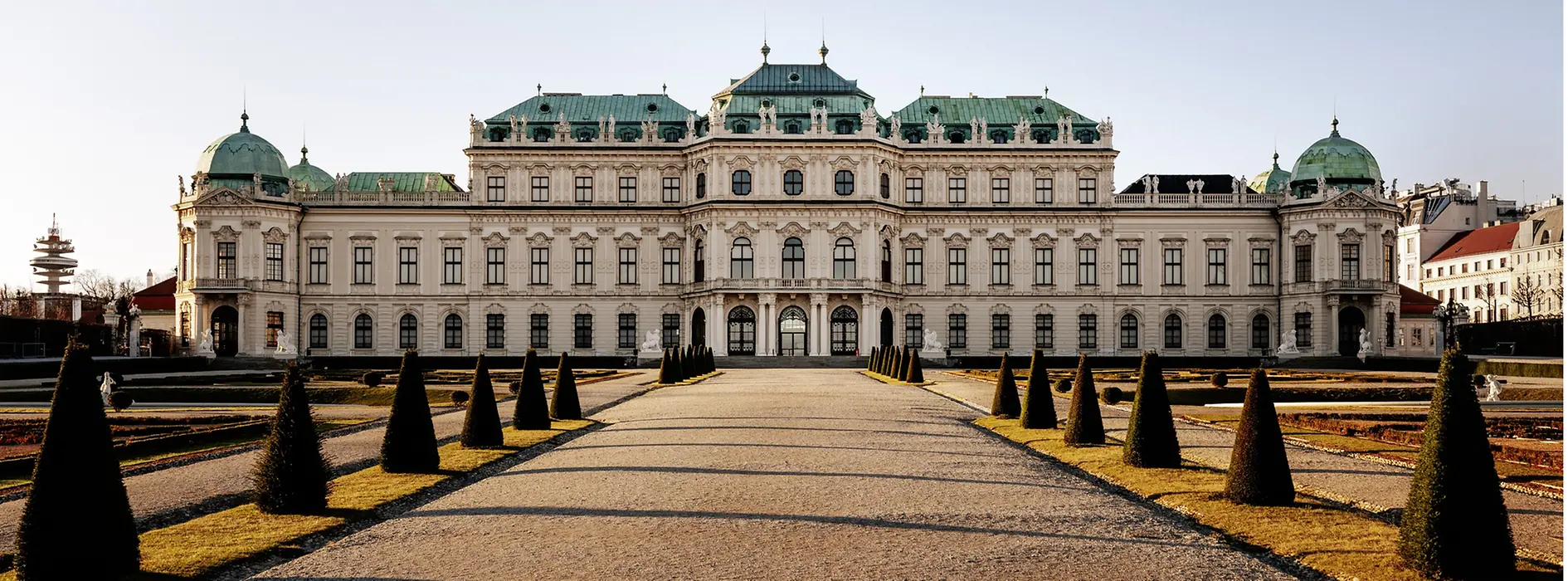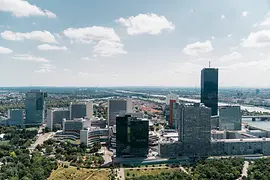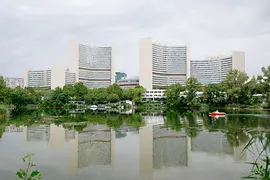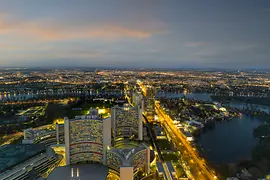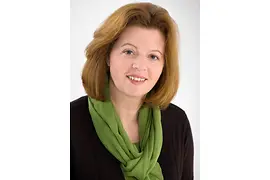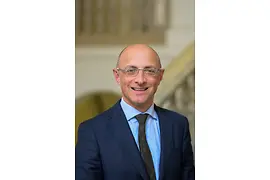Vienna, City of International Organizations
The numbers speak for themselves: Vienna is home to more than 50 intergovernmental organizations. Above all, the Austrian capital is known the world over as one of just four major office sites of the Unites Nations (UN). On top of that, it is home to more than 120 bilateral as well as about 140 multilateral diplomatic missions. As a result, there are more than 3,200 diplomats and around 7,300 international functionaries living in Vienna. It's not down to chance, but the result of an illustrious history of diplomacy. Alena Sirka-Bred, Head of the Municipal Department of Europe and International Affairs of the City of Vienna: "As the former capital of the multi-ethnic Habsburg empire, Vienna has always been an international city. It also has a long tradition as a meeting place for rulers and diplomats – the Congress of Vienna in 1814/1815, the legendary Kennedy-Khrushchev Summit Meeting in 1961, and the nuclear treaty negotiations with Iran in 2015 and 2021 come to mind in this regard." But it is not just Vienna's history that carries weight. There are many other reasons why the city retains its exceptional status to this day.
Neutral and ideally located
Vienna's geographical position in the center of Europe plays a decisive role in its standing on the international diplomatic stage: "Particularly during the Cold War, the city’'s geographical location and Austria's political neutrality spurred Vienna's development as a platform for international dialog," Sirka-Bred explained. The list of institutions that located in Vienna during this period is as long as it is impressive: 1957 marked the establishment of the International Atomic Energy Association (IAEA) in Vienna. In 1965, the Organization of the Petroleum Exporting Countries (OPEC) relocated to Vienna from Geneva. A short time later, in 1967, the United Nations Industrial Development Organization (UNIDO) followed suit. And 1976 saw the foundation of the OPEC Fund for International Development (OFID) An absolute highlight came at the end of the 1970s, as Sirka-Bred noted: "The decisive step for Vienna's present-day status at the top table of international diplomacy was the construction of the Vienna International Center and its transfer to the United Nations in 1979." The move created a self-perpetuating dynamic that reached a new level in 1995 when Austria joined the European Union.
Dynamism and innovation
Sirka-Bred: "The more international organizations that put down roots in Vienna, the more it increased Vienna's profile and broadened its international cachet, which in turn burnished the city's reputation still further. Independently of its strong history in this area, the capital also offers a great deal of dynamism and innovation. After all, Vienna's outstanding reputation is based on much more than just the past." So it follows that international organizations continue to converge on the city. Since 1995, the Organization for Security and Co-operation in Europe (OSCE) Secretariat has had its headquarters in Vienna. The World Bank Group's presence in the city dates back to 2004. Interest in the Austrian capital continued to ride high in the 2010s. The International Organization for Migration (IOM) has had a regional office in the city since 2011. It was joined by the International Anti-Corruption Academy (IACA) in the same year. The Ban Ki-moon Center and the International Monetary Fund’s (IMF) Regional Office for the Western Balkans are two of the more recent arrivals.
Vienna's special spirit
Thanks to its long and unbroken history of diplomacy, the cit'’s reputation proceeds it in diplomatic circles. Diplomats the world over speak of Vienna's special spirit. Ambassador Klaus Famira, Head of Department for Official Residences and State Conferences at the Austrian Federal Ministry for European and International Affairs talks about the distinctive diplomatic backdrop in Vienna: "Experienced international negotiators like to cite the 'Vienna spirit' in reference to the tradition of showing willing to come up with joint solutions to difficult questions, and being ready to compromise. Known as a place of dialog, Austria is valued as a bridge-builder and a good host." This was true during the time of the Congress of Vienna and is still reflected in present-day geopolitical issues. Famira: "Austria does a great deal to ensure that international negotiator teams feel at home in the city." And this also applies to organizations looking to relocate. It is not just down to momentum that Vienna has become a diplomatic center: "Successive Austrian governments and the City of Vienna have been working hard for decades to attract international organizations andencourage international conferences to come to the city."
Quality of life, security and lots of culture
What is it about Vienna that international organizers prize so highly? Famira: "Vienna has outstanding infrastructure, as well as excellent international transport connections. But what really matters to the international organizations is the high degree of security that Vienna has to offer." What also counts is that numerous international organizations focusing on future issues surrounding security and sustainability can be found in Vienna. "Here in Vienna we are seeing the emergence of a kind of specialist location that often results in mutually beneficial and highly fruitful cooperation between various organizations," Famira said. The organizations’ employees are also highly appreciative of the excellent conditions: "Vienna offers outstanding quality of life. It sets store by foreign-language schools for its young people and a multilingual cultural offering. Both of which are areas in which the city is thriving. They also feel that Vienna is the right size – for a major city it's manageable, but still provides an outstanding cultural offering. Vienna has none of the endless traffic jams that other world capitals have to contend with, but no-one is at risk of getting bored due to a lack of culture either. And on top of that, green spaces and recreation areas are within easy reach."
